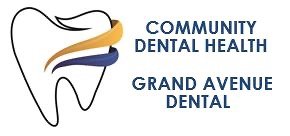Facts on Elderly and their Oral Health Blog
Following facts are drawn from the statement of Richard H. Carmona, M.D., M.P.H., F.A.C.S., Surgeon General, U.S. Public Health Service, Department of Health and Human Services 9/22/03
FACT: About 70% of individuals 65 and older still retain their teeth. However, statistics vary by state.
FACT: Periodontal infections are more common in the elderly. About 23% of 65-74 year olds have several periodontal diseases.
FACT: Studies have shown association between oral infections and systemic diseases such as diabetes, heart disease and respiratory infections.
FACT: The incidence of oral and pharyngeal cancers is higher among seniors than for other age groups. Seniors who are 65 years and older are seven times more likely to be diagnosed with oral cancer than younger individuals.
FACT: Many seniors take medications that have the complicating side effect of reducing salivary flow resulting in xerostomia (or "dry mouth"). Reduction in salivary flow contributes to increased dental decay.
FACT: The vast majority of payment for dental services is out-of-pocket for older people. Medicare does not cover cost for oral health services and dental care, with only rare exceptions. For most people who have dental insurance coverage as a benefit of their employment, that coverage ends upon their retirement.
FACT: In addition, most seniors have limited income. This results in compromised access to dental care. Seniors are less likely to go to the dentist. While 61% of the population reports having a dental visit in the past year; only 45% of seniors 75 years and older report having a dental visit.
FACT: Nursing homes and other long-term care facilities have limited capacity to deliver needed oral health services to their residents, most of whom are at increased risk for oral diseases.
While oral health is tremendously important to all Americans, I’m sure I don’t have to tell you that it is not always the focus of much attention. Americans tend to think that oral health is less important than, and separate from, general health.
The findings of the science-based report, Oral Health in America: A Report of the Surgeon General recognized that oral health is essential to general health and well-being. This integral relationship is demonstrated by the fact that oral diseases affect health throughout life and that general health problems, such as diabetes, osteoporosis, HIV, and other conditions, are associated with oral manifestations and effects. In addition, this report highlights the fact that low-income individuals have a higher prevalence of untreated oral diseases regardless of age.
Seniors, by the nature of their life span, are more prone to chronic, disabling diseases and conditions; are more apt to be on regimens of daily medications; and have a greater likelihood to be low-income than other adults. These factors and others have a profound effect on their oral health.
Do you still have your teeth?
These findings and reports were made in 2003, yet very little changes have been made. We at Senior Mobile Dental have formed this organization to directly address the needs our Senior Citizens face in the oral and overall health. The economy has now become a factor in funding available to provide care to this vulnerable, frail, and often forgot population. As stated earlier, dental support has mostly been focused on children’s needs. We need to focus and bring attention and care to the needs of the parents of our nation, the elderly. We are asking the public as individuals to support our program and bring access to care these seniors so desperately need. I’m sure you will have you teeth if you become placed in a similar situation.
Observation
Majority foundation funding for dental health is focused on and limited to children’s care.
Final Challenge
If these seniors still have their teeth while residing in a long term care facility, this means they have taken care of their teeth their whole life. Why should their standards of care change now because they are in different socio-economic condition?
